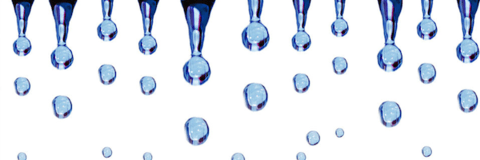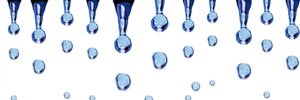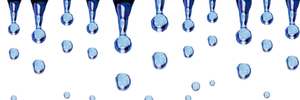Nervous System Studies
Inhalation of hydrogen in Parkinson’s disease
Hyposmia is one of the earliest and the most common symptoms in Parkinson’s disease (PD). The benefits of hydrogen water on motor deficits have been reported in animal PD models and PD patients, but the effects of hydrogen gas on PD patients have not been studied. The authors evaluated the effect of inhalation of hydrogen gas on olfactory function, non-motor symptoms, activities of daily living, and urinary 8-hydroxy-2′-deoxyguanine (8-OHdG) levels by a randomized, double-blinded, placebo-controlled, crossover trial with an 8-week washout period in 20 patients with PD. Patients inhaled either ~1.2-1.4% hydrogen-air mixture or placebo for 10 minutes twice a day for 4 weeks. Inhalation of low dose hydrogen did not significantly influence the PD clinical parameters, but it did increase urinary 8-OHdG levels by 16%. This increase in 8-OHdG is markedly less than the over 300% increase in diabetes, and is more comparable to the increase after a bout of strenuous exercise. Although increased reactive oxygen species is often associated with toxicity and disease, they also play essential roles in mediating cytoprotective cellular adaptations in a process known as hormesis. Increases of oxidative stress by hydrogen have been previously reported, along with its ability to activate the Nrf2, NF-κB pathways, and heat shock responses. Although the authors did not observe any beneficial effect of hydrogen in our short trial, they propose that the increased 8-OHdG and other reported stress responses from hydrogen may indicate that its beneficial effects are partly or largely mediated by hormetic mechanisms.
Hirayama M, Ito M, Minato T, et al. Inhalation of hydrogen gas elevates urinary 8-hydroxy-2′-deoxyguanine in Parkinson’s disease. Med Gas Res. 2019 Jan 9;8(4):144-149.
Efficacy of inhaled hydrogen on neurological outcomes following brain ischemia during post-cardiac arrest
Hydrogen gas inhalation (HI) improved survival and neurological outcomes in an animal model of post-cardiac arrest syndrome (PCAS). The feasibility and safety of HI for patients with PCAS was confirmed in a pilot study. The objective of this study is to evaluate the efficacy of HI for patients with PCAS. The efficacy of inhaled Hydrogen on neurological outcome following Brain Ischemia During post-cardiac arrest care (HYBRID II) trial is an investigator-initiated, randomized, double-blind, placebo-controlled trial designed to enroll 360 adult comatose (Glasgow Coma Scale score < 8) patients who will be resuscitated following an out-of-hospital cardiac arrest of a presumed cardiac cause. The patients will be randomized (1:1) to either the HI or control group. Patients in the HI group will inhale 2% hydrogen with 24% to 50% oxygen, and those in the control group will inhale 24% to 50% oxygen for 18 h after admission via mechanical ventilation. Multidisciplinary post-arrest care, including targeted temperature management (TTM) between 33 °C and 36 °C, will be provided in accordance with the latest guidelines. The primary outcome of interest is the 90-day neurological outcome, as evaluated using the Cerebral Performance Categories scale (CPC). The secondary outcomes of interest are the 90-day survival rate and other neurological outcomes. This study will provide 80% power to detect a 15% change in the proportion of patients with good neurological outcomes (CPCs of 1 and 2), from 50% to 65%, with an overall significance level of 0.05. The first multicenter randomized trial is underway to confirm the efficacy of HI on neurological outcomes in comatose out-of-hospital cardiac arrest survivors. Our study has the potential to address HI as an appealing and innovative therapeutic strategy for PCAS in combination with TTM.
Tamura T, Hayashida K, Sano M, et al. Efficacy of inhaled HYdrogen on neurological outcome following BRain Ischemia During post-cardiac arrest care (HYBRID II trial): study protocol for a randomized controlled trial. Trials. 2017 Oct 23;18(1):488. doi: 10.1186/s13063-017-2246-3.
Hydrogen gas inhalation in acute cerebral infarction
Molecular hydrogen (H2) acts as a therapeutic antioxidant. Inhalation of H2 gas (1-4%) was effective for the improvement of cerebral infarction in multiple animal experiments. Thus, for actual applications, a randomized controlled clinical study is desired to evaluate the effects of inhalation of H2 gas. Here, the authors evaluate the H2treatment on acute cerebral infarction. Through this randomized controlled clinical study, the authors assessed the safety and effectiveness of H2 treatment in patients with cerebral infarction in an acute stage with mild- to moderate-severity National Institute of Health Stroke Scale (NIHSS) scores (NIHSS = 2-6). The study enrolled 50 patients (25 each in the H2 group and the control group) with a therapeutic time window of 6 to 24 hours. The H2 group inhaled 3% H2 gas (1 hour twice a day), and the control group received conventional intravenous medications for the initial 7 days. The evaluations included daily vital signs, NIHSS scores, physical therapy indices, weekly blood chemistry, and brain magnetic resonance imaging (MRI) scans over the 2-week study period. The H2 group showed no significant adverse effects with improvements in oxygen saturation. The following significant effects were found: the relative signal intensity of MRI, which indicated the severity of the infarction site, NIHSS scores for clinically quantifying stroke severity, and physical therapy evaluation, as judged by the Barthel Index. H2 treatment was safe and effective in patients with acute cerebral infarction. These results suggested a potential for widespread and general application of H2 gas.
Ono H, Nishijima Y, Ohta S, et al. Hydrogen Gas Inhalation Treatment in Acute Cerebral Infarction: A Randomized Controlled Clinical Study on Safety and Neuroprotection. J Stroke Cerebrovasc Dis. 2017 Nov;26(11):2587-2594.
Hydrogen-rich water for improvements of mood, anxiety, and autonomic nerve function in daily life
Health and a vibrant life are sought by everyone. To improve quality of life (QOL), maintain a healthy state, and prevent various diseases, evaluations of the effects of potentially QOL-increasing factors are important. Chronic oxidative stress and inflammation cause deteriorations in central nervous system function, leading to low QOL. In healthy individuals, aging, job stress, and cognitive load over several hours also induce increases in oxidative stress, suggesting that preventing the accumulation of oxidative stress caused by daily stress and daily work contributes to maintaining QOL and ameliorating the effects of aging. Hydrogen has anti-oxidant activity and can prevent inflammation, and may thus contribute to improve QOL. The present study aimed to investigate the effects of drinking hydrogen-rich water (HRW) on the QOL of adult volunteers using psychophysiological tests, including questionnaires and tests of autonomic nerve function and cognitive function. In this double-blinded, placebo-controlled study with a two-way crossover design, 26 volunteers (13 females, 13 males; mean age, 34.4 ± 9.9 years) were randomized to either a group administered oral HRW (600 mL/d) or placebo water (PLW, 600 mL/d) for 4 weeks. Change ratios (post-treatment/pre-treatment) for K6 score and sympathetic nerve activity during the resting state were significantly lower after HRW administration than after PLW administration. These results suggest that HRW may reinforce QOLthrough effects that increase central nervous system functions involving mood, anxiety, and autonomic nerve function.
Mizuno K, Sasaki AT, Ebisu K et al. Hydrogen-rich water for improvements of mood, anxiety, and autonomic nerve function in daily life. Med Gas Res. 2018 Jan 22;7(4):247-255.
Molecular hydrogen inhalation in acute cerebral ischemia patients
In animal experiments, use of molecular hydrogen (H2) has been regarded as quite safe and effective, showing benefits in multiple pathological conditions such as ischemia-reperfusion injury of the brain, heart, kidney and transplanted tissues, traumatic and surgical injury of the brain and spinal cord, inflammation of intestine and lung , degenerative striatonigral tissue and also in many other situations. However, since cerebral ischemia patients are in old age group, the safety information needs to be confirmed. For the feasibility of H2 treatment in these patients, delivery of H2 by inhalation method needs to be checked for consistency. Hydrogen concentration (HC) in the arterial and venous blood was measured by gas chromatography on 3 patients, before, during and after 4% (case 1) and 3% (case 2,3) H2 gas inhalation with simultaneous monitoring of physiological parameters. For a consistency study, HC in the venous blood of 10 patients were obtained on multiple occasions at the end of 30-min H2 inhalation treatment. The HC gradually reached a plateau level in 20 min after H2 inhalation in the blood, which was equivalent to the level reported by animal experiments. The HC rapidly decreased to 10% of the plateau level in about 6 min and 18 min in arterial and venous blood, respectively after H2 inhalation was discontinued. Physiological parameters on these 3 patients were essentially unchanged by use of hydrogen. The consistency study of 10 patients showed the HC at the end of 30-min inhalation treatment was quite variable but the inconsistency improved with more attention and encouragement. H2 inhalation of at least 3% concentration for 30 min delivered enough HC, equivalent to the animal experiment levels, in the blood without compromising the safety. However, the consistency of H2 delivery by inhalation needs to be improved.
Ono H, Nishijima Y, Adachi N, Sakamoto M, Kudo Y, Kaneko K, et al. A basic study on molecular hydrogen (H2) inhalation in acute cerebral ischemia patients for safety check with physiological parameters and measurement of blood H2 level. Med Gas Res. 2012 Aug 23;2(1):21.
Acute brain stem infarct sites treated with edaravone and hydrogen
In acute stage of cerebral infarction, MRI indices (rDWI & rADC) deteriorate during the first 3-7 days after the ictus and then gradually normalize in approximately 10 days (pseudonormalization time), although the tissue is already infarcted. Since effective treatments improve these indices significantly and in less than the natural pseudonormalization time, a combined analysis of these changes provides an opportunity for objective evaluation on the effectiveness of various treatments for cerebral infarction. Hydroxyl radicals are highly destructive to the tissue and aggravate cerebral infarction. We treated brainstem infarction patients in acute stage with hydroxyl radical scavengers (Edaravone and hydrogen) by intravenous administration and evaluated the effects of the treatment by a serial observation and analysis of these MRI indices. The effects of the treatment were evaluated and compared in two groups, an Edaravone alone group and a combined group with Edaravone and hydrogen, in order to assess beneficial effects of addition of hydrogen. The patients were divided in Edaravone only group (E group. 26 patients) and combined treatment group with Edaravone and hydrogen enriched saline (EH group. 8 patients). The extent of the initial hump of rDWI, the initial dip of rADC and pseudo-normalization time were determined in each patient serially and averages of these data were compared in these two groups and also with the natural course in the literatures. The initial hump of rDWI reached 2.0 in the E group which was better than 2.5 of the natural course but was not as good as 1.5 of the EH group. The initial dip of rADC was 0.6 in the E group which was close to the natural course but worse than 0.8 of the EH group. Pseudonormalization time of rDWI and rADC was 9 days only in EH group but longer in other groups. Addition of hydrogen caused no side effects. Administration of hydroxyl radical scavengers in acute stage of brainstem infarction improved MRI indices against the natural course. The effects were more obvious and significant in the EH group. These findings may imply the need for more frequent daily administration of hydroxyl scavenger, or possible additional hydrogen effects on scavenger mechanisms.
Ono H, Nishijima Y, Adachi N, Tachibana S, Chitoku S, Mukaihara S, et al. Improved brain MRI indices in the acute brain stem infarct sites treated with hydroxyl radical scavengers, Edaravone and hydrogen, as compared to Edaravone alone. A non-controlled study. Med Gas Res. 2011;1:12.
Molecular hydrogen therapy in Parkinson’s disease: a pilot study
Oxidative stress is involved in the progression of Parkinson’s disease (PD). Recent studies have confirmed that molecular hydrogen (H₂) functions as a highly effective antioxidant in cultured cells and animal models. Drinking H₂-dissolved water (H₂-water) reduced oxidative stress and improved Parkinson’s features in model animals. In this a placebo-controlled, randomized, double-blind, parallel-group clinical pilot study, the authors assessed the efficacy of H₂ -water in Japanese patients with levodopa-medicated PD. Participants drank 1,000 mL/day of H₂-water or pseudo water for 48 weeks. Total Unified Parkinson’s Disease Rating Scale (UPDRS) scores in the H₂-water group (n=9) improved (median, -1.0; mean ± standard deviation, -5.7 ± 8.4), whereas UPDRS scores in the placebo group (n=8) worsened (median, 4.5; mean ± standard deviation, 4.1 ± 9.2). Despite the minimal number of patients and the short duration of the trial, the difference was significant (P<0.05). The results indicated that drinking H₂-water was safe and well tolerated, and a significant improvement in total UPDRS scores for patients in the H₂-water group was demonstrated.
Yoritaka A, Takanashi M, Hirayama M, Nakahara T, Ohta S, Hattori N. Pilot study of H2 therapy in Parkinson’s disease: A randomized double-blind placebo-controlled trial. Mov Disord. 2013;28:836-9.



